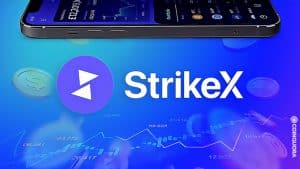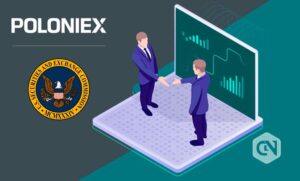
Making payments and conducting business today is easier than ever; thanks to the internet. The total global online payments in 2020 reached $5.44 trillion, and it is projected to grow by more than 100% to $11.29 trillion by 2026.
With the rising market for online payments, the risk of transacting with frauds or criminals comes foremost, resulting in extortion, theft, or even life threats. Online transactions can be precarious without reliable means of running background checks, especially for informal dealings with strangers. However, you can protect yourself from fraud by using ‘people search services’, like UnMask or CheckPeople, for personal and non-professional background checks. But how do these services enhance the security of online transactions? We shall find out soon, beginning with a discussion on the necessity of such services.
Verifying Transactions & the Need for a People Search Service
In online transactions, you need the assurance that your money is or will be in safe hands. Most importantly, transactions must serve their intended purpose and not unsolicited ones. You must get what is due when paying for some informal service or product. Verification, for one, can resolve these problems.
Information about individuals is substantially available in the public domain; they are highly scattered, though, and effectively inaccessible. A service that can collate all the data from diverse databases into one platform is convenient for the end-users. Having said that, what kind of information may one verify concerning online sales and transactions? Let’s take a look.
A background check company can access the Public Records database for details available under the constitutional Right to Information in broad terms. In general, this covers one’s declared profession or business, residential or business location, registration number, age, and so on.
Now, as with John, you might want to ascertain the counterparty’s identity before sending them money or goods. To this end, the information mentioned above becomes crucial. You can be sure of dealing with the right person, rather than some fraud or imposter. For instance, you can check whether the person has provided the right name, address, and telephone number. Or, say, while buying something, you can be sure that the seller is the genuine owner and not some shady middleman.
Therefore, the most significant benefit of using people’s search services is the ability to verify the credentials provided. Verifying claims regarding identity is much easier offline retail scenarios, but it’s a different ball game online, especially for informal dealings and transactions. You can trust the counterparty for sure, but in most cases, it’s wiser to verify.
The FCRA Guidelines: Protecting People’s Information
The fact that something is available doesn’t mean it’s up for exploitation, particularly concerning individuals’ public information. To this end, the Fair Credit Reporting Act (FCRA) guidelines extensively denote how you can use publicly available information. For a start, consumer reporting agencies cannot use this information without due licenses. Additionally, FCRA prohibits the unlicensed usage of background checks for employment purposes, tenant screening, insurance, and creditworthiness.
Educational institutions and insurance companies cannot run police checks independently. Banks can look into individual records for granting or denying loans only in compliance with the FCRA standards. Landlords and employees can run credit reports on tenants or employees by acquiring explicit consent from the individual concerned. Consequently, in such situations, the ability to run credit reports is mostly a clause in the contract; the signing party, thus, grants consent.
The primary intention of the FCRA guidelines is to protect users’ information, especially against abuse for unethical purposes. Thus, only authorized credit reports can be used for the sensitive topics and decisions above. In other cases, a less formal background check is appropriate.
How Background Checks Can Help
The FCRA sets rightful limits on the scope of background checks, to protect the individual’s right to privacy and to ensure individuals cannot be denied a job, a loan, or housing based on inaccurate or incomplete information from public records. But beyond that, it leaves a domain where you are entitled to run background checks for personal and non-professional purposes.
Enter UnMask, a platform that lets you run frictionless and accurate background checks to verify basic credentials, such as an address, age, contact number, and so on. The process is perfectly hassle-free: enter the person’s name, add their city, and get your required information. Moreover, a reverse phone lookup feature enables you to run checks using the individual’s phone number.
“People often neglect the importance of knowing who they’re actually transacting with online unless they personally face an adverse situation,” said Elvis Dzebic, the CEO of Unmask.com, while reflecting on the matter. “However, accidents can happen any time, and now more than ever, people need to protect themselves online. Despite the guidelines protecting people’s personal information, there’s enough you can still know about an individual or an entity to paint a better picture of whether they’re trustworthy or not.”
Finally, to conclude, we must reiterate a crucial point. Handle the information you acquire using online background check platforms with the utmost care and sensitivity. Bear the FCRA guidelines in mind, for sure, but do extend your sensibility beyond that; respect personal liberty and privacy at all costs. Verify for your safety not to harm others. As long as you do that, background check services can give you peace of mind when transacting online.
- &
- 2020
- access
- All
- Banks
- business
- Buying
- care
- cases
- ceo
- Checks
- City
- claims
- Companies
- company
- compliance
- consent
- consumer
- contract
- Costs
- Counterparty
- Credentials
- credit
- Criminals
- data
- Database
- databases
- dealing
- employees
- employment
- extortion
- Face
- fair
- Feature
- fraud
- game
- General
- goods
- grants
- Grow
- guidelines
- housing
- How
- HTTPS
- Identity
- information
- institutions
- insurance
- Internet
- IT
- JavaScript
- Job
- Liberty
- licenses
- loan
- Loans
- location
- Long
- lookup
- Market
- money
- online
- online payments
- online sales
- Other
- Others
- owner
- paint
- payments
- People
- picture
- platform
- Platforms
- plugin
- Police
- privacy
- Product
- protect
- public
- records
- Registration
- Reports
- retail
- reverse
- Risk
- Run
- running
- safe
- Safety
- sales
- Search
- security
- Services
- So
- Social
- standards
- start
- theft
- threats
- time
- Topics
- Transactions
- Trust
- Verification
- What is
- WHO











